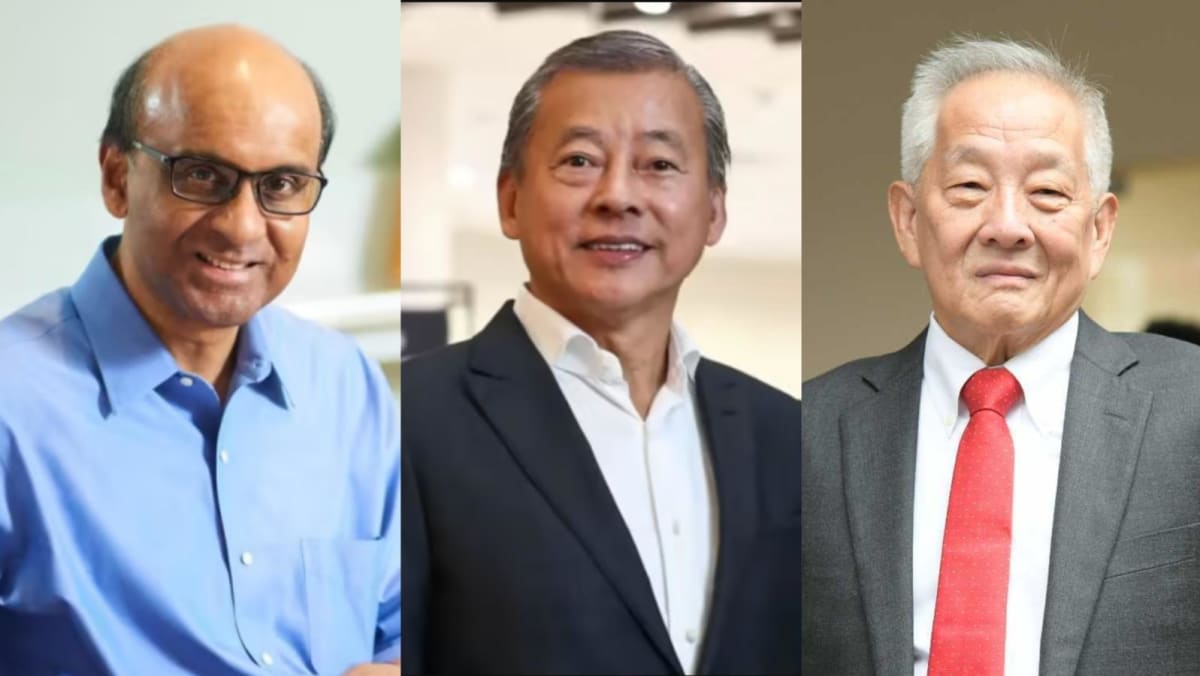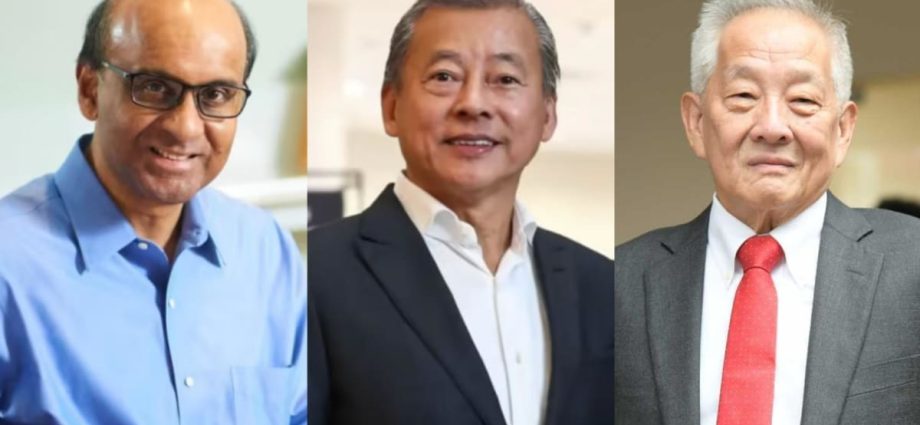
POLITICAL AFFILIATION
The issue of an elected President’s ties with political parties has been a divisive topic among the three presidential hopefuls since they announced their intention to run.
Mr Tharman, who has been a People’s Action Party (PAP) Member of Parliament since 2001, resigned from the ruling party and left politics on Jul 7.
When questioned about his independence at the official launch of his presidential bid on Jul 26, Mr Tharman cited the example of former President Ong Teng Cheong, who was a Cabinet minister and even chairman of the PAP for many years before he became Singapore’s head of state.
He emphasised his “independence of mind”, highlighting the difference between that and “independence from any past affiliation with a political party”.
In response to questions about Mr Tharman’s stand, fellow presidential hopeful Mr Goh said a day later that it is difficult for someone to become independent “overnight” after having been in Singapore’s political system for decades.
Mr Goh is best known as the founder of Harvey Norman Ossia, which distributes consumer electronics and furniture in Asia under the Australian brand.
Mr Ng, another presidential hopeful and the former chief investment officer of Singapore’s sovereign wealth fund GIC, has also spoken about his lack of political affiliations. He said Singapore needs a president who is “independent of any political party to safeguard the integrity of our institutions”.
From the survey questions on the President’s links with political parties, 65.4 per cent of respondents knew that the elected individual must not be a member of any political party.
About 56.3 per cent of respondents knew that a political party can endorse the elected President, while a higher 66.4 per cent knew that the elected President cannot endorse a political party.

